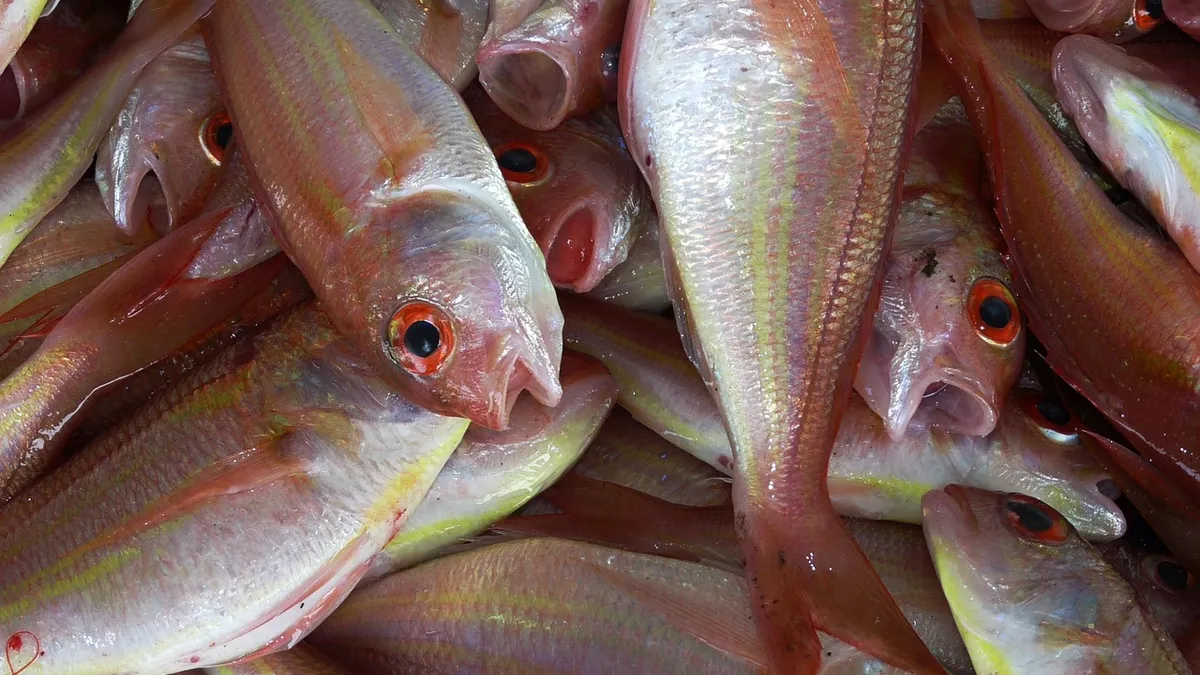Dive Brief:
-
Sustainable seafood company Blue Circle Foods said an online survey last month of 313 people found "overwhelming concern" about seafood sources, contaminants, ocean pollution and overfishing — but price topped the list of factors affecting their purchasing decisions.
-
The survey found 90% are worried about mercury contamination in fish and other seafood, 88% about ocean pollution, 86% about the extinction of wild fish species and 83% about seafood mislabeling, Blue Circle said.
- The company noted while concerns about pollution have reduced the number of U.S. families feeding fish to children, the survey also found positive attitudes toward seafood. More than three-quarters had purchased seafood at least once in the previous month, and most said the products are more sustainable than poultry, beef and pork.
Dive Insight:
Given that a sustainable seafood company sponsored this online survey — and that there were only 313 respondents — the confidence level in the findings could be higher. Still, the results may be useful as an indicator of consumer attitudes toward seafood purchases at a time when news about contamination, overfishing and ocean pollution is widespread.
Blue Ocean, which sells sustainable farm-raised and wild-caught fish and guarantees 100% traceability and third-party certification, could be encouraged by how many shoppers are buying and preparing fish and other seafood for their children. The survey showed 83% say their children enjoyed such products, and 82% of children had eaten seafood by age 10 or younger, the company said.
Consumers continue to view seafood as a more sustainable choice than meat and poultry. They also think fish and other seafood are healthier than pork, beef and grains, and as healthy as vegetables, Blue Ocean said.
The seafood industry can enhance its appeal by focusing on sustainability and transparency, as well as emphasizing the protein, vitamins and minerals fish provide. That may not silence the siren song of plant-based alternatives, which are growing by leaps and bounds and whose manufacturers don't have to respond to concerns about sustainability, pollution and overproduction.
Plant-based tuna from Good Catch Foods is a case in point. The New York company said its products avoid high mercury levels, PCBs, dioxins and other contaminants found in ocean-based fish and diseases and other problems from factory fish farming and aquaculture.
Whether these options gain momentum in the near future remains to be seen, but it's clear consumers want to see more sustainability and traceability in everything they consume — not just in seafood. The question is when price will no longer be their top motivating factor.














